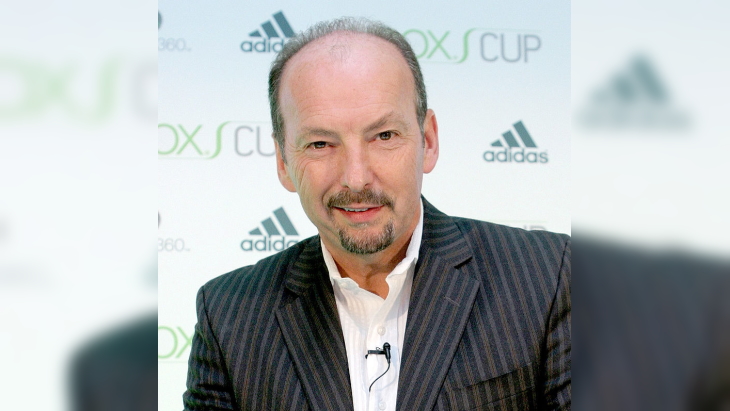
Former Electronic Arts and EA Sports executive Peter Moore has stated in an interview that the Ultimate Team lootboxes are closer to “surprise and delight” than gambling.
GamesIndustry.biz reports that during their interview with Moore about his recent appointment to the board of directors for Nifty Games and his career, Moore discussed lootboxes.
When asked about the ongoing criticism of lootboxes (and how EA’s Ultimate Team has become an example of the worst of it), Moore explained how it was part of sport’s fans history. He said the concept of Ultimate Team “goes all the way back to collecting cigarette cards in the 1920s and ’30s.”
He also compared it to the UK’s Lucky Bags, a pack of random toys, games, and candy. This was something Moore personally bought his childhood. “People loved it,” he explained. “I think that sense of uncertainty and ‘What are you going to get?’ and then bang, Ronaldo or Messi would roll out and that’s a wonderful thing.”
Moore also defended Ultimate Team, stating that gambling and “the concept of surprise and delight” were “a long way from each other.”
“You’re always getting something, it’s not like you opened it and there’s no players in there.
This is a personal view, but the concept of surprise and delight vs gambling… On a continuum, they’re a long way from each other. You buy or grind your way up to getting a gold pack, you open it up, and you’re either happy or you think it’s a crappy pack. I don’t see that as gambling, per se — but again, this is my personal view as an outsider right now.
I get the scrutiny, I understand outside of sports that loot boxes — again, another EA title in particular — get a lot of scrutiny and criticism. EA pulled back on that. One thing they’re always good at is getting feedback and realising ‘You know what, probably shouldn’t have done that’ or ‘That was the wrong decision, it wasn’t gamer-first,’ and then pulling back and making a different decision.”
Moore also suggested (in GamesIndustry.biz’ words) “the most telling factor should be whether players like it, and EA’s balance sheet certainly seems to suggest this.” The Ultimate Team made 27% of EA’s net revenue in the prior financial year at $1.49 billion USD. It made over $1 billion USD for the two years prior to that.
“The numbers speak for themselves, and if you play it, you love it. One of the only complaints we got about Ultimate Team while I was at EA was if the servers went down and they couldn’t play or open their packs.
It has really developed a service element to the game itself, and pretty much reinvented with FIFA was all about in a period where sports games were relatively stagnant.”
Moore acted as the head of EA Sports from 2007 to 2011, and COO of EA from 2012 to 2017. He then became CEO of the UK’s Liverpool Football Club, with his three-year tenure finishing in 2020. As aforementioned, he is currently on the board of directors for Nifty Games.
While Moore clearly states the above is his personal opinion; this is not the first time someone from EA has said comments akin to lootboxes being a surprise.
In 2018, the UK Gambling Commission refuted the claim made by some media outlets that lootboxes are akin to gambling. Despite this (or in response to it), in 2019 the UK Digital, Culture, Media and Sport Committee recommended the UK government ban the sale of lootboxes to children, after its nine month inquiry into “immersive and addictive technologies.”
The inquiry involved speaking to industry representatives, including EA and Epic Games. While some felt the proceedings were intentionally badgering, there were blunderous comments made by them.
EA representatives claimed lootboxes were “surprise mechanics,” while an Epic Games representative said they “would disagree with the statement that Epic makes money from people playing the games.“ The UK’s report would later lament that “some representatives” chose to lie, in the committee’s opinion.
In October 2019, EA had filed another patent to encourage microtransactions via creating a “sense of urgency“ as a microtransaction item decreases in “value” over time.
In earlier news, EA face a fine of up to €10 Million EUR over “illegal loot boxes” in FIFA games, after a Dutch court ruled them to be gambling without a licence. EA are also facing a class action lawsuit in Canada over lootboxes across several sports games. These include the Madden NFL series, and EA Sport’s NHL series.
EA are also being sued over the alleged use of patented dynamic difficulty technology to encourage lootbox purchases in EA Sports titles. The suit claims that even players with high stats end up not playing as effectively as they should, and that if EA are using this technology they are not disclosing it.
In the ongoing controversy surrounding lootboxes, several governmental bodies within nations, and their politicians [1, 2, 3, 4] threatened to take legal action against developers.
EA removed premium currency from FIFA 18 and FIFA 19, after Belgium authorities deemed lootboxes as being on-par with gambling. In addition several companies pulled their games from service within Belgium.
While the UK’s National Health Service (NHS) would recommend a ban on games with lootboxes aimed at children in January 2020, UK trade body The Association for UK Interactive Entertainment (UKIE) reiterated many tools and methods are already in place.
In early June 2020, the UK’s Department for Digital, Culture, Media and Sport then called for evidence that lootboxes should be deemed gambling. This later lead to the UK’s House of Lords Select Committee calling on the UK government to “act immediately” and classify lootboxes as gambling.
In late July 2020, a European Union Report recommended tackling lootboxes via new consumer protection regulation, rather than via gambling based ones.
Image: Wikipedia